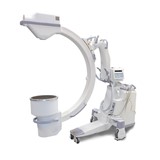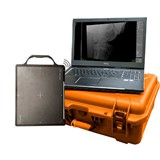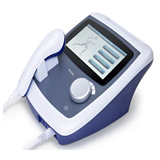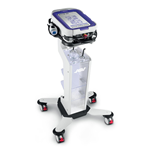The superbug accounts for an estimated $3.2 billion each year in health care costs in the United States alone.
In research published today in PLoS Pathogens, team leader Dr Dena Lyras and lead author Dr Glen Carter, from the Monash University School of Biomedical Sciences, demonstrate how a naturally occurring mutation in the bacterium Clostridium difficile causes potentially life-threatening diarrhoea in hospital patients undergoing antibiotic therapy.
Dr Lyras said C. difficile, which is able to colonise the colon when antibiotics, administered to treat other infections, have wiped out protective bacteria in the gut, causes a range of bowel disease symptoms, from mild diarrhoea to more chronic forms.
We've found that particularly dangerous strains of C. difficile are produced when a mutation effectively wipes out an inbuilt disease regulator, called anti-sigma factor TcdC. Not only are these strains hypervirulent, they are resistant to broad spectrum antibiotics, making them difficult to treat," said Dr Lyras.
The results of the study suggest that all C.difficile strains carrying a similar mutation have the inherent potential to increase toxin production and become hypervirulent.
Dr Lyras said this increased understanding underlying infection severity was timely as the incidence of hospital acquired infections was rising.
"Over the past decade, there has been an astonishing increase in C.difficile infections throughout the world. Worryingly, the bacteria are also infecting people previously considered not at risk, including children and pregnant women.
"This is a major public health issue. Hospitals, intended as places of healing, provide the perfect environment for the rapid evolution of pathogens that target susceptible patients.
"We must understand how these superbugs develop so we can develop treatments to combat them," added Dr Carter.
"This study gives us a better understanding of these strains - how they develop, how they cause disease and why they are so harmful - so we can design new strategies to prevent, control and treat the rising rates of infection."
Dr Lyras and Dr Carter collaborated with scientists from the Monash University Department of Microbiology and Monash Medical Centre, in Melbourne; the University of Glasgow, Kansas State University, and Institute Pasteur. The researchers were funded by the NHMRC, ARC, Welcome Trust and NIH.














-160x160-state_article-rel-cat.png)













